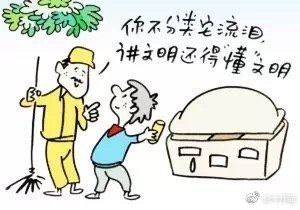C4.19 Waste Sorting and Recycling¶
Waste Sorting in the UK: Do Not Dump Large Furniture Randomly
Waste disposal in the UK is not like in China, where you can throw everything into a single bin. Even though China has separate bins for recyclables and non-recyclables on the streets, many people still dump waste without sorting it.
This is not allowed in the UK. If you dump unsorted waste, the consequences can be serious:
Minor violations may result in garbage trucks refusing to collect your waste, leaving it piled up at your home.
Severe violations can lead to direct fines.
I think China should adopt a similar system in the future. While it may be challenging to implement nationwide immediately, it could start with trials in major cities and gradually build waste-sorting awareness through school curricula from an early age.
Typical Waste Bins for Houses
Most houses in the UK have 3 bins, usually in green, blue, and brown (bin colors vary by region—some areas use blue, black, green, or other color combinations). Each color has a specific purpose.
Garbage trucks collect waste once a week or twice a month, typically on Tuesdays.
They collect one color of bin every other week (e.g., green bins one week, blue bins the next).
Residents must push their bins to the street in advance and place them properly.
Waste must not overflow from the bins, and the lids must close completely—otherwise, the collection crew will refuse to take the waste. They will also check if the waste inside complies with sorting rules.

We often forget to put the bins out. Sometimes on Tuesdays, we’re still in bed when we hear the garbage truck outside. We’ll jump right out of bed, rush to push the bins out, then climb back under the covers to keep sleeping...
At first, we used to push all three bins out at once. Our elderly neighbor next door couldn’t stand that—every time, he’d help push them back into our backyard and leave us a note in English. Of course, it took us ages to read his handwriting; it was really quite hard to make out... Later, we started following our neighbor’s lead: whatever color bin he put out, we put out the same one. That old grandpa is such a kind man—he not only takes in many stray cats, but he also keeps helping us with our bins.
Every bin is marked with your house number. Don’t lose your bins—they’re quite expensive! Some bins are labeled "recyclable" or "non-recyclable," but most aren’t; you just go by their color. Before you move in, ask your agent how to sort the waste properly。。。

Oh, a rather interesting advertising slogan just popped into my head: "Waste sorting starts with me."
Waste in the UK is generally categorized into:
Non-recyclable household waste
Recyclable waste
Construction waste
Old large electrical appliances, etc.
Bin Color & Waste Types
Blue bins: For all recyclable waste, such as newspapers, cardboard boxes, and cola bottles. If the boxes are extremely large, you must cut them down to size before putting them in.
Green bins: For non-recyclable household waste, like leftover food scraps. Never pour liquids (such as soups or sauces) directly into the bin. Put them in a garbage bag, tie it tightly, and then place the bag in the bin—being considerate of others makes things easier for yourself too.
Brown bins: As my agent told me, these are for small amounts of construction waste or garden waste (e.g., tree clippings). This waste also needs to be broken into small pieces and packed into bags before disposal.
These bins are only for small-scale waste. Used batteries must not be thrown away randomly—many supermarkets, shopping malls, and other locations have special bins dedicated to battery recycling.

How to Dispose of Large Old Furniture and Appliances?
If you want to get rid of large items like sofas, cabinets, fridges, washing machines, TVs, beds, tables, or chairs, here are your options:
Take them to a local large waste disposal center yourself
These centers are usually located in suburban areas, so they may be quite far from residential areas.
Pay for disposal services
You can hire the waste disposal center or a private waste clearance company to pick up and dispose of the items for you (a fee will apply).
Donate to local charities
Charities may refuse your donation if the items are too old, broken, or not in acceptable condition.
Give them away for free
You can give the items to friends, junior students, etc., or list them online as free items (asking the recipient to collect them). However, most furniture and appliances are hard to give away this way—recipients often find it uneconomical to arrange transportation themselves.
Place them outside your home with a "Free" sign
This method also rarely works. For example, I often see neighbors place sofas, tables, or toys outside their homes with a "FREE" sign, but the items remain there even after two weeks.